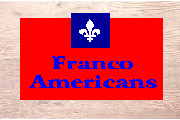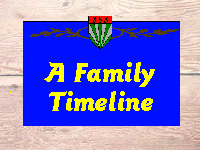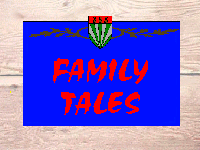|
Franco-American Terms |
|
|
Acadian: |
In a general sense, all the descendants of the French settlement in Acadia in the 1600s are Acadians. During the British expulsion (Le Grand Dérangement) of the these families (the British called them "the French Neutrals") in the mid-1700s, the Acadians were scattered across the Eastern seaboard of the British America or sent overseas to Europe, with little regard for the separation of families or neighbors. Some families managed to elude capture and remained in vicinity of their original Acadian farmsteads, which had been occupied by British settlers. These families resettled in other areas of the region, such as New Brunswick, Prince Edward Island, and northern Maine. However, with each new migration of British and Loyalist settlers, the northern Acadian families would be forced from their farms and sent wandering again. Eventually, many of them traveled to the Upper St. John River, beyond the thunderous Grand Falls that prevented British ships from following them, to what they called "the Madawaska." Here, in 1785, they resettled for good. Two years later, they were joined by a group of Québecois families from the Kamouraska region. (One British ship of captive Acadians was actually recaptured by the Acadians and these families rejoined the "free" Acadians on the St. John River.) |
|
Deuxième Dérangement |
In 1776, the British Government evicted, for the second time, the Acadian families within its northern jurisdiction. This time, the Acadian families of the Lower St. John River were forced from their homes to make way for Loyalist families fleeing the American Revolution. |
|
Cajun: |
After Le Grand Dérangement, those Acadian families that eventually settled in Louisiana intermingled with the Creole French already there and became called Cajuns. |
|
Franco-American: |
The all-inclusive term for anyone with French heritage in America. |
|
Free Acadians: |
Those Acadian families that avoided capture by the British during Le Grand Dérangement. |
|
French Canadian:. |
In general, anyone of French heritage from the areas that are now part of Canada is a French Canadian. However, it is a term that is traditionally applied to the French community from Québec, and thus is often synonymous with Québecois |
|
French Protestant: |
See "Huguenot." |
|
Grand Decharge |
1829. |
|
Grand Dérangement |
The first Acadian colonists had settled in Nova Scotia in 1605. They cleared the land, erected dikes, established prosperous farms, and lived in isolation from the rest of the world for a century. When the Treaty of Utrect was signed in 1713, the British were ceded control of Acadia by the French. The Acadians refused repeatedly to take an unconditional oath of allegiance to the British crown. However, they had also refused to take sides in the many British/French conflicts that marred the early 18th century in the New World. In 1713, 1717, and 1750, the Acadians had asked for permission to leave Nova Scotia -- permission that the British Government, fearing the resulting loss of revenue and productivity in the region, refused to grant. But in 1755, British Governor Lawrence decided the Acadians were a threat to British control, and on September 5th of that year, his men suddenly announced to the Acadians that they were to be evicted from their homes, effective immediately. Families were separated, their possessions taken, and their homes burned to the ground. Shiploads of Acadians were scattered to British colonies in America or sent to England and France in often unseaworthy boats. Most of these refugees were made to feel very unwelcome, and treated with disdain and distrust. As much as half the Acadian population died in the ensuing years of hardship and wandering. |
|
Huguenot: |
The French Protestants who fled the persecution of the French Government under Cardinal Richelieu. Richelieu's 1628 siege of La Rochelle destroyed the center of Protestant power in France and forced over 200,000 Huguenots to flee for more tolerant lands, such as Switzerland, Germany, Holland, and Britain. By 1725, as many as 7000 Huguenot refugees had already reached the shores of America, largely in New England, New York, Pennsylvania, Virginia and South Carolina. A number of Huguenots settled in Pownalborough, Maine. |
|
The Madawaska: |
The region on both sides of the Upper St. John River valley of southern New Brunswick and northern Maine, settled by Acadian and Québecois families in the 1780s. |
|
Québecois: |
French for someone from Québec. In general, this is a term used for people of French heritage from the present-day Canadian province of Québec. |
|
Valley French: |
The Acadian and Québecois settlers of the Madawaska. Also refers to the dialect of French spoken by residents of the area. |
| Other Places in the Barn | ||
 |
 |
 |
 |
 |
 |
 |
 |
 |
Scott Michaud is
MAZHUDE@HOTMAIL.COM
Professional writer, editor,
fact-finder,
and occasional user
of Standard American English.
Thanks for stopping by. You are one ofvisitors here.
Here's My Old
GUESTBOOK,
which may or may not still work.
|
Sign My NEW Guestbook Just Look At My NEW Guestbook |
